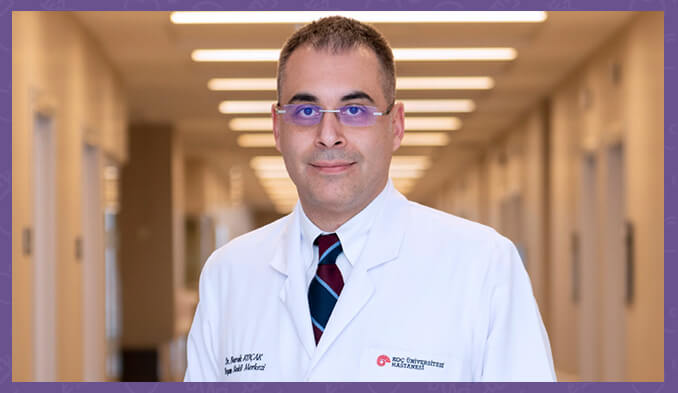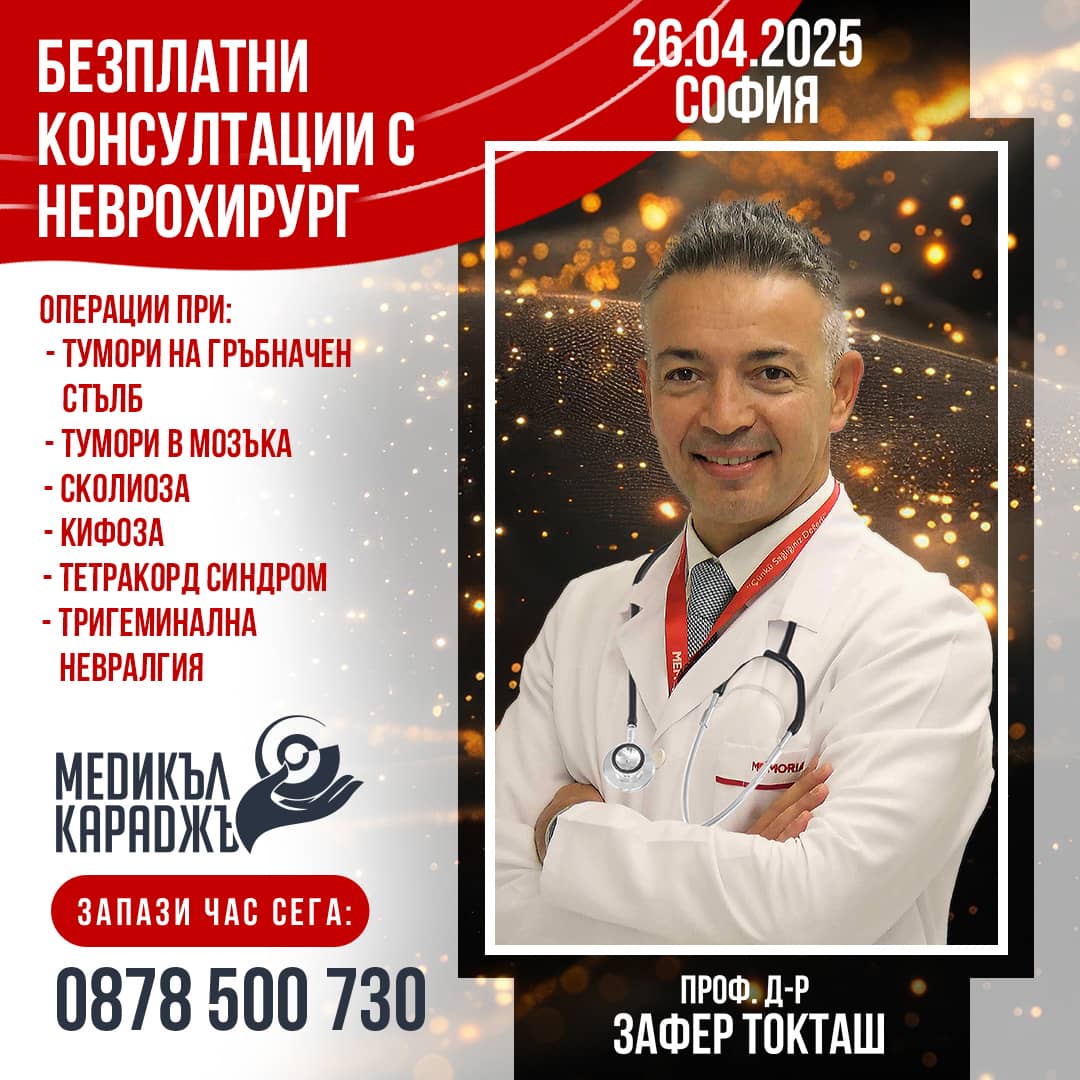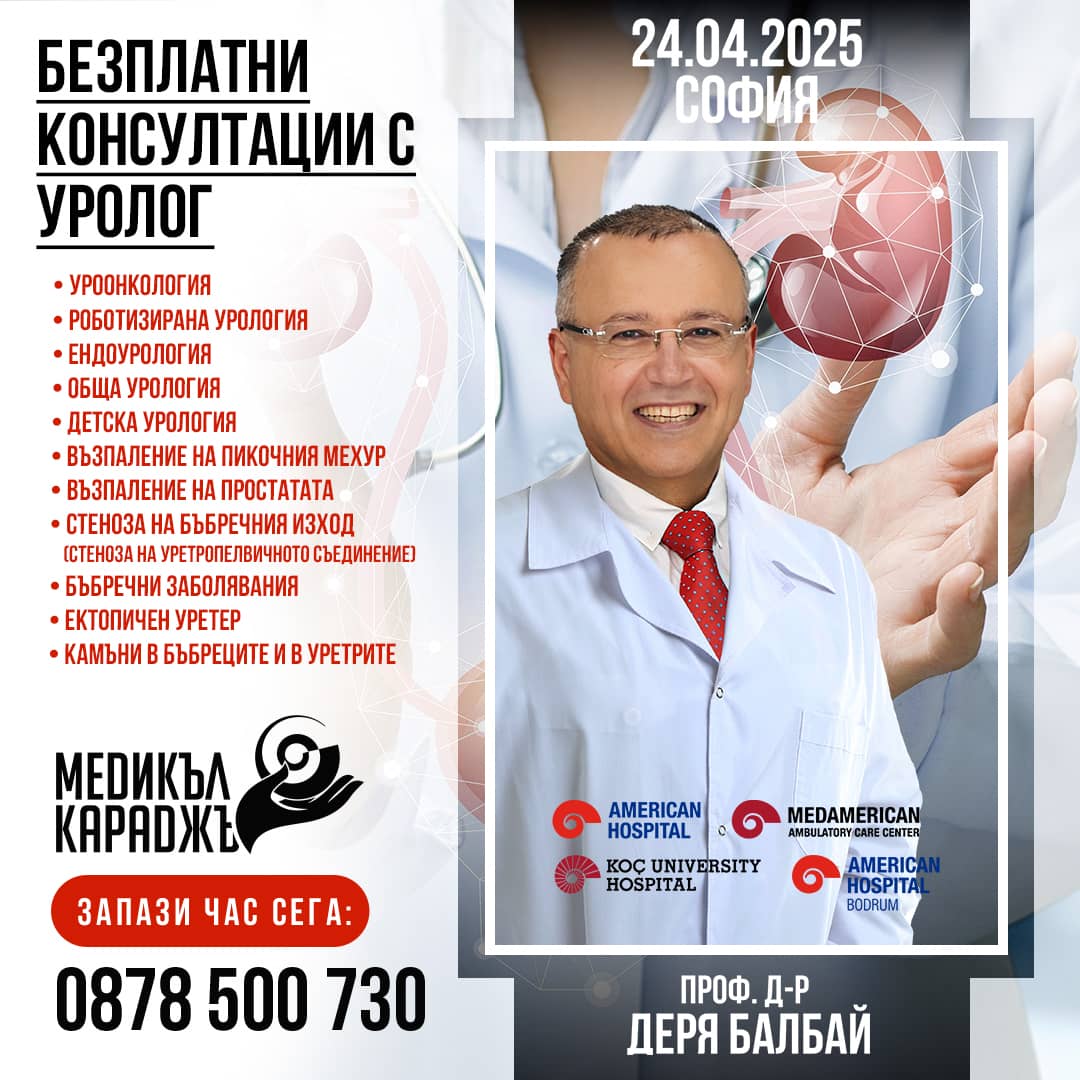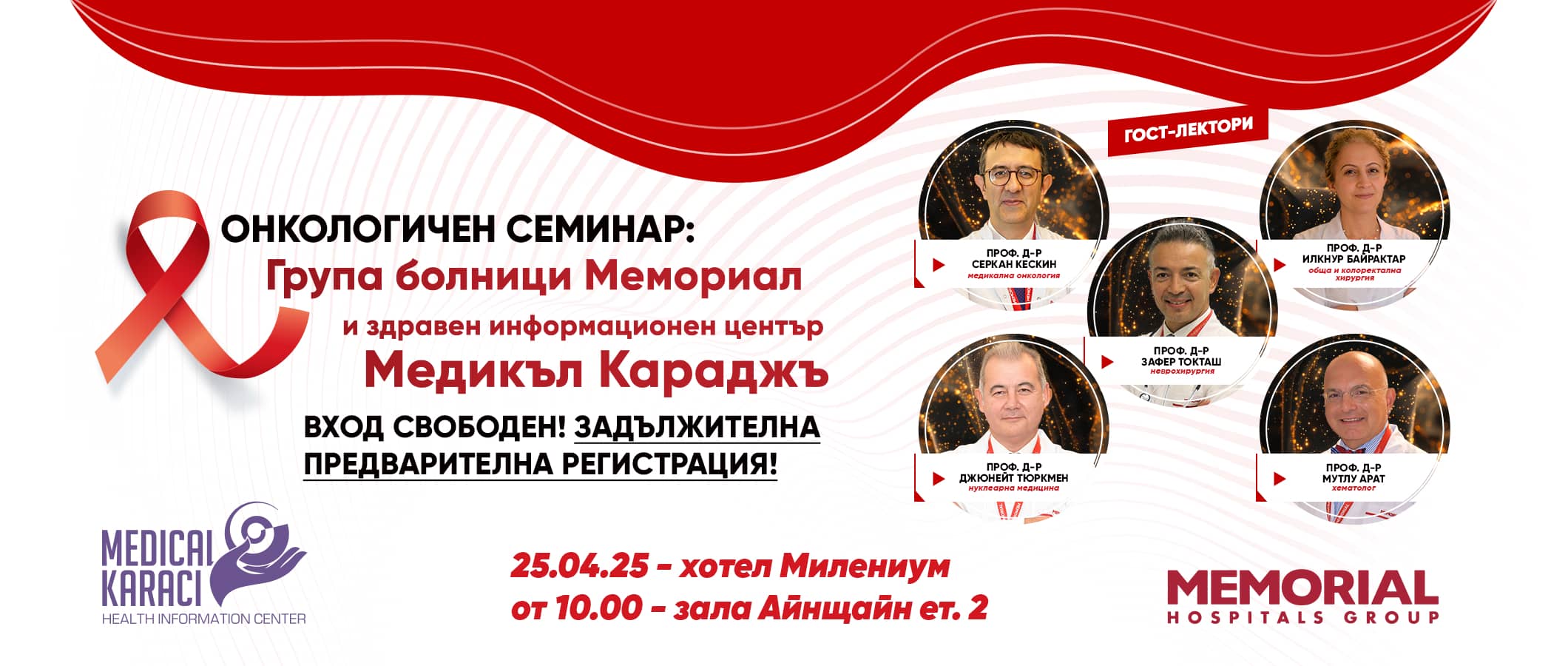Prof. Dr. Burak Koçak, one of the leading urology and transplantology specialists in Turkey, will consult patients in Sofia for free on 24 and 25 November 2017. Assoc. Koçak is the head of the Kidney Transplant Center at Memorial Shishli Hospital, which is known for its high success rate in kidney transplant surgeries, including in children under 10 kg. He is coming to our country at the invitation of the Health Information Center "Medical Karaj", as part of their initiative to provide Bulgarian patients with access to the most advanced methods in medicine, partnering with some of the best medical institutions and specialists from around the world.
Associate Professor Dr. Burak Koçak honed his skills in transplantology at Northwestern University, USA. Dr. Emre Arpal (from Assoc. Kochak's team) has completed his organ transplant training at University of Wisconsin, USA. Both urological surgeons are certified by the American Society of Transplant Surgeons to perform kidney and pancreas transplantation. The team also has the necessary experience and equipment for kidney transplants in children, and recently performed a kidney transplant from a living donor on a 6-month-old infant weighing 6.5 kg and standing 68 cm tall. About 25% of the transplants at the centre are in children, and the success rate is 99.9%, said Assoc. Koczak.
Prof. Dr. Burak Koçak provided detailed information on kidney failure and kidney transplantation:
Simple test diagnoses kidney problems
Kidney failure is an extremely insidious disease and at the beginning it can proceed without any symptoms. It begins mostly with lassitude, and in an advanced stage hypertension, swelling of the eyelids and limbs, bone pain, especially in the legs, and a visible decrease in the amount of urine may be observed. Usually people turn to a doctor after the onset of such complaints when the disease is advanced. And in fact, kidney failure can be detected much earlier with just a simple creatinine test in the blood or urine to take action in time. People who have a family history of kidney disease, those who are overweight, and people over the age of 65 fall into the risk group for chronic kidney failure. They should have a check-up at least once a year to measure their blood sugar, blood pressure and check their kidney function by measuring serum creatinine.
Transplant now possible in babies and 80-year-olds
Chronic renal failure is an irreversible condition and patients have no alternative but dialysis and transplantation, points out Assoc. Koczak. But kidney transplant patients have a higher quality and length of life compared to those on dialysis. That's because dialysis only partially replaces kidney function. While the 5-year survival for kidney transplant patients is 90%, it is 40% for dialysis patients. Therefore, if possible, every patient with chronic renal failure, regardless of age, should undergo kidney transplantation. In the USA, a kidney transplant was performed on an 86-year-old patient, and in Turkey, on an 82-year-old patient. At the same time, children under the age of 5 should necessarily and immediately undergo a transplant to enjoy normal development, points out Assoc. Koczak.
However, in Bulgaria and Turkey, as well as all over the world, the number of people in need of a new organ exceeds the number of brain-dead cadaver donors many times over. That is why more and more people are resorting to the so-called "living" donation, i.e. a relative of the patient with two healthy kidneys donates one of them and thus saves his life. In the last 10 years, the advent of the laparoscopic method of kidney removal has also contributed to donors not being afraid of surgery and has increased the number of living donors by 30%. Laparoscopic surgery is performed through small openings in the patient's abdomen instead of making open incisions in the body. A camera is passed through one of these openings to visualize the operator's actions, and the surgical instruments are inserted through the other. This ensures less pain and a faster recovery for the donor - the same night after surgery, donors can walk and drink water, and the next morning, they can eat and bathe.
"Hybrid method" in cross kidney transplantation
Cross-transplants are a chance for patients who have a donor but are not compatible. In the past, a cross-transplant was only done for couples with blood incompatibility. But thanks to advanced technology, this issue is now seen from a different perspective. A patient's immune card can show whether or not his blood contains so-called antibodies that attack the donor's tissues. For example, if a woman wants to donate her kidney to her husband, but tests show that there are antibodies against that kidney in his blood, the likelihood that the transplant will be unsuccessful is 100%. Transplantation can also be performed in these people by administering treatment with certain medications to lower the antibody levels. But if these antibodies are above the specified level, the transplant will again fail or after a certain time the body may still reject the kidney. This is why the hybrid method is applied. Two compatible pairs are selected and crossed with each other, bringing the antibody levels in the blood to the point of guaranteed cure. When the antibody levels become completely safe for surgical intervention, the transplant is performed successfully. Kidney transplants that are performed using a hybrid method on compatible patients are less immune risky and more successful.
Those wishing to take advantage of the opportunity for a free consultation with Dr. Burak Koçak in Sofia on 24 and 25 November should make an appointment in advance at the following numbers "Medical Karaj": 0879 977 401 or 0879 977 402as well as to provide on the spot all medical documents in their possession to date.









